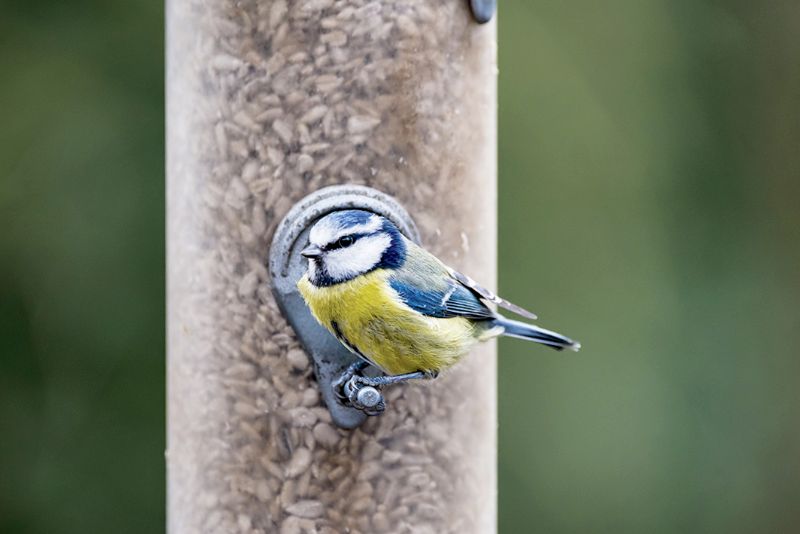- Home
- News, Articles & Reviews
We are hiring! Please click here to join our growing magazine delivery team in Gloucestershire!
Areas
Pets & Wildlife
Archive

A safe haven for winter
All Areas > Pets & Wildlife > Wildlife Matters
Author: Maxine Raggatt, Posted: Wednesday, 24th October 2018, 09:00
One of the most important things about the changing seasons is to ensure we provide the right conditions for our wildlife to thrive. Just as we do, creatures of all shapes and sizes need food and shelter from the harsh conditions winter can bring, but sometimes nature requires a helping hand. We can prepare our gardens with minimal effort and it will cost next to nothing to provide the necessary resources to ensure the survival of many different species.
Use what nature provides
The autumn wind will shake many leaves and sticks down from the nearby trees into your garden; you can brush this all to one corner for insects and hedgehogs to use as shelter. By leaving the stems of dried up flowers, you are giving smaller insects a place to hide inside during winter. You can also harvest the seeds from the middle of the dried flower heads and save them to plant next year to add more beauty to your garden.
Pondlife
If you have a pond in your garden, the best time to clear it out is when activity is at its lowest – this being between October and January. However, you may still find a range of invertebrates trapped in the vegetation you remove. These could be snails or damselfly nymphs, so it is best to leave this vegetation spread on the floor for a day or two to allow time for any remaining pondlife to make their way back to where they came from.
Don’t prune the ivy
During autumn and winter, most trees lose their leaves, but ivy holds out through the cold months with its evergreen nature. Ivy is, in fact, more beneficial to wildlife than most people first realise – it is not merely a place for shelter, but also food. Berries are produced to provide food for birds throughout the winter, as they need the energy to control their body temperature. Small yellow flowers that also grow on ivy are precious to insects, as they are one of the last sources of nectar available until spring.
Give birds a helping hand
Putting up a bird box and some food is also hugely beneficial for the survival of birds, especially during snowy and icy conditions. Birds not only enjoy bird seed, but you can also put out unsalted peanuts, cheese, apples and pears.
It’s a great idea to have a bird bath so that clean water is available for them. If you find the water freezes overnight, you can float a ball in the water and remove it in the morning so the birds can drink through the hole in the ice.
Preparing your garden can be a great family activity, encouraging children to do their bit for creatures great and small, as each and every one matters. So remember, as tempting as it is to clean up your garden for winter, try to leave at least the outer borders untouched for animals to take shelter, and leave ivy and bushes untrimmed for extra protection against the elements.Other Images
Copyright © 2024 The Local Answer Limited.
Unauthorized use and/or duplication of this material without express and written permission from this site's author and/or owner is strictly prohibited. Excerpts and links may be used, provided that full and clear credit is given to The Local Answer Limited and thelocalanswer.co.uk with appropriate and specific direction to the original content.More articles you may be interested in...


© 2024 The Local Answer Limited - Registered in England and Wales - Company No. 06929408
Unit H, Churchill Industrial Estate, Churchill Road, Leckhampton, Cheltenham, GL53 7EG - VAT Registration No. 975613000You are leaving the TLA website...
You are now leaving the TLA website and are going to a website that is not operated by us. The Local Answer are not responsible for the content or availability of linked sites, and cannot accept liability if the linked site has been compromised and contains unsuitable images or other content. If you wish to proceed, please click the "Continue" button below:




